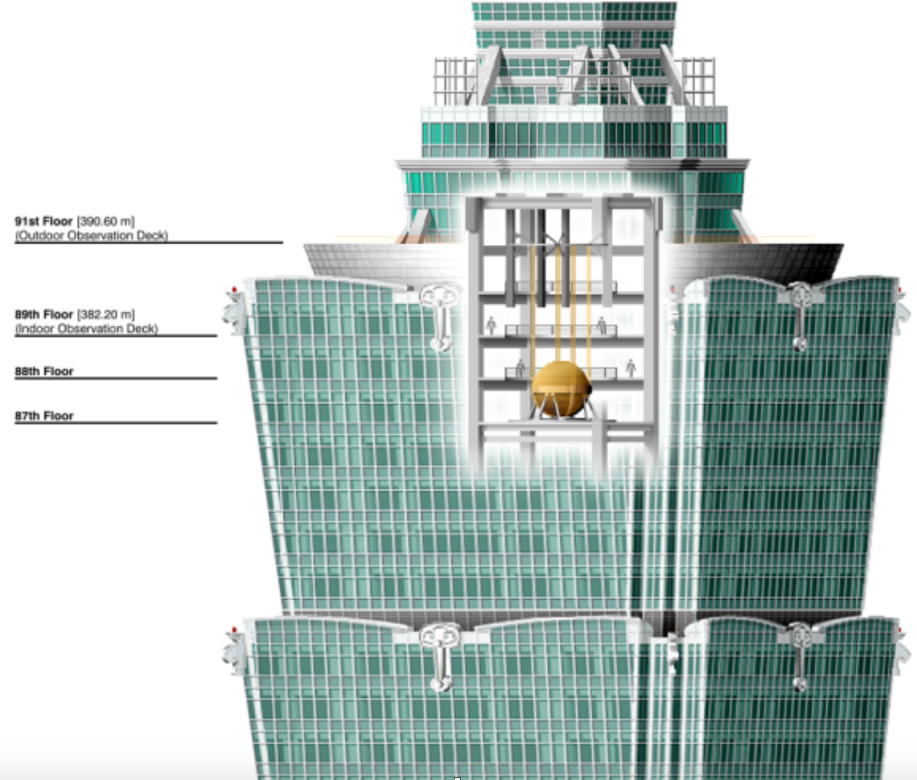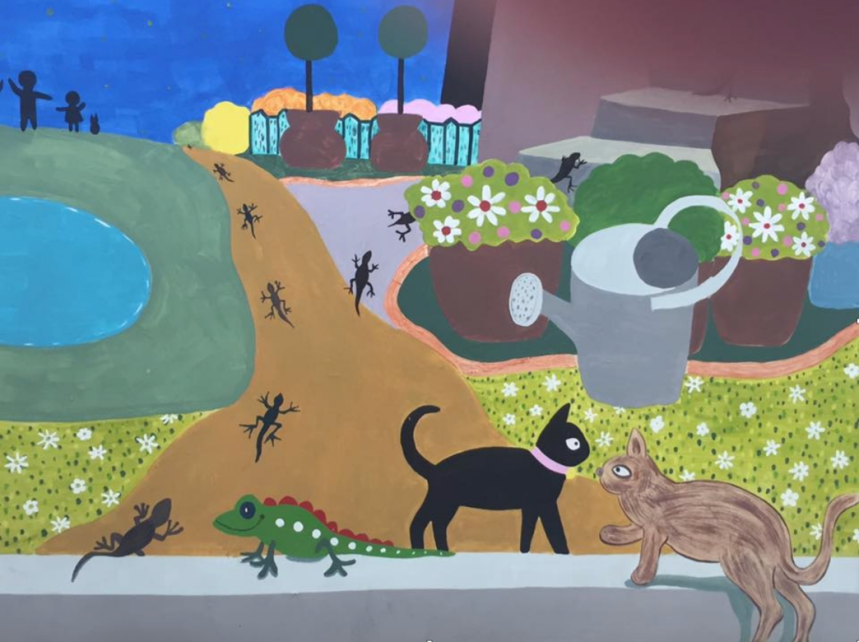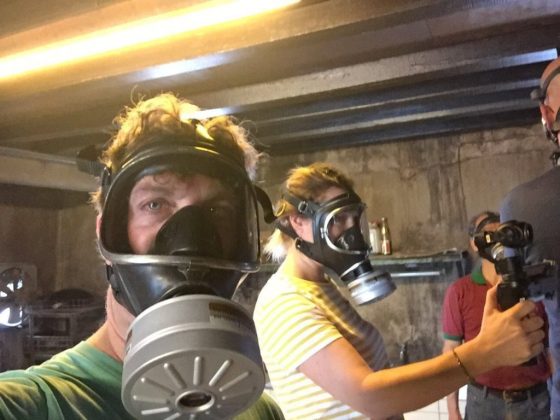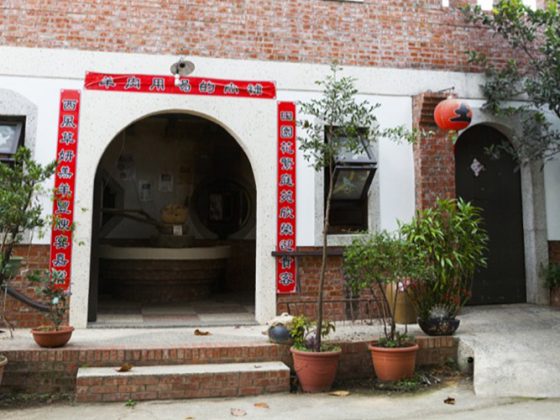Our first question this month concerns fine dining in Taipei:
Q1. What are the best French restaurants in Taipei?
OK, keeping in mind that “best” is definitely a matter of opinion, the best French restaurant that I’ve eaten at in Taipei is definitely Orchid (Chinese name is 蘭), which is the Da’an District on Section 2, Anhe Road, 83號. I’ve eaten there twice in the past couple of months, both times on assignment for magazine articles about Taiwan’s haute cuisine scene. Headed by chef Gildas Perin (who brings his years of experience at Michelin-starred restaurants in France as well as Yannick Alléno’s STAY Taipei), Orchid serves a Modern French tasting menu with Taiwanese hospitality in a distinctive setting. While borrowing flavors from local ingredients, the menu is definitely rooted in French cooking, respecting solid and traditional methods of sauce making. So for French cuisine in Taiwan, that’d be our first choice.
Our guest columnist, Hungry Girl in Taipei, wrote about her experiences at Orchid and five other Michelin-star restaurants in Taipei in this article, so feel free to check it out: Celebrating Michelin Gastromonth in Taipei
Hope this helps, and Bon appetite!
Next, we answered something more specific to gluten free travel.
Q2. What are some good gluten free options at Chinese restaurants?
One of our regular columnists at Taiwan Scene has pretty serious celiacs disease – the way that she describes it, if she gets a dose of wheat in her food, she’s basically in a world of pain for hours. Since she lives in Taiwan, she’s developed a couple of different strategies for avoiding gluten. First, obviously, she’s memorized a couple of phrases in Mandarin:
I am allergic to wheat / 我對小麥過敏 / Wǒ duì xiǎomài guòmǐn
Is the most important one, but one problem is that some soy sauces have wheat “thickeners” in them. Not all, just some. But since soy sauce is in almost everything, she generally avoids it entirely by saying “I am allergic to soy sauce” (我對醬油過敏 / Wǒ duì jiàngyóu guòmǐn and “Don’t add soy sauce” (不要加醬油 / Bùyào jiā jiàngyóu).
Second, avoid the obvious things like noodles, anything coated in flour and deep fried (egg rolls, obviously). Rice noodles are a good alternative, as are fresh spring rolls.
If you’re specifically looking to eat gluten-free in Taiwan, these are the two articles that Stephanie Huffman wrote for Taiwan Scene on the subject.
Gluten Free Eating in Taiwan Part One: Restaurant Dining
Gluten Free Eating in Taiwan (Part Two): Wheat Free Snacks and Gluten Free Night Market Fare
Hope this helps!
Our next answer moved from foods to stuff to do in Taiwan
Q3. What are some must-do things in Taiwan?
Difficult to answer this question without knowing what you’re looking for. Taiwan is definitely not a one-trick pony travel destination. We’re more of a smorgasbord of everything from culture and history to food and nightlife to nature and wildlife…and that doesn’t even cover everything.
Is there anything specific you’re looking to experience here? If you’re just looking for ideas, come check out our website, Taiwan Scene. Here are a few links to different sections:
Action, Sports & Adventure – Taiwan Scene
Festivals, History & Culture – Taiwan Scene
If you’re looking to go to specific places in Taiwan, just check out Places – Taiwan Scene.
Anyway, hope this helps.
Our fourth answer this month concerned underrated things to do in Taipei.
Q4. What are underrated things to do in Taipei?
That’s a darn good question, one with many possible answers. So I’m going to go with a simple one, and maybe not the first answer you’d expect from a someone on Quora working for a Taipei-based travel company that exists to show people around Taiwan.
The most underrated activity in Taipei is wandering.
Head to pretty much any neighborhood and wander around. Don’t just stick to the main avenues. Wander through the smaller lanes and alleys that connect the main streets. What might you come across in your wandering?





These, of course, are five random examples out of an endless variety of possibilities. Day or night, the streets are safe. Don’t worry about getting lost – indeed, that’s kind of the point. Unless you’re seriously on the edge of town, you’ll eventually hit a main avenue if you just keep walking in the same direction. If you get hungry, you’ll come across a 7–11, Family Mart or random coffee shop or noodle joint before too long.
If you’re on the edge of town, wandering in various directions may bring you to out of town entirely, so unless you’re prepared for a hike best to turn back. (That said, there are lovely hiking trails all over Taipei.) If you’re feeling adventurous, hop on a bus and hop off in an area that strikes you as interesting. If you’re feeling really adventurous, take the MRT to the end of the line and wander around.
Random wandering may be Taipei’s greatest unsung tourist attraction.
The fifth question required a bit of research on our part:
Q5. Does Taipei 101 have base isolators to prevent from earthquakes?
Definitely a worthy question considering that one of the world’s tallest buildings happens to also be located in one of the planet’s most earthquake-prone areas. Rest assured that the potential frequency and magnitude of earthquakes (not to mention the predictably more-frequent high winds that occur during Taiwan’s typhoon season) were taken into account in every stage of Taipei 101’s construction. Indeed, one of the main attractions of the building (next to the spectacular view from the top and maybe the awesome food court in the basement) is the massive internal damper (nicknamed damper baby), which control swaying and minimizes the possibility of structural damage to the building during earthquakes or high winds. The damper is a massive yellow globe that hangs suspended from eight steel cables in the center of the building between the 87th and 91st floors.

When a force comes along, whether from above or below, this pendulum absorbs the force. Building management has a camera installed that continually films the ball, and often plays footage of what it looks like to be inside of Taipei 101 during an earthquake with the ball swinging back and forth while the building itself remains relatively still.
This is a good article from Slate / Atlas Obscura that’ll give you more information about the building’s construction, and how the damper ball works:
How to Keep a 101-Story Skyscraper Steady in High Winds
Good question, thanks for asking!
Our sixth answer concerns Taiwan’s generally open visa policy
Q6. Which country’s visa do you need to visit Taiwan?
Officially speaking, Taiwan is known as the Republic of China (ROC), not to be confused with the People’s Republic of China (PRC). From a traveler’s point of view, all you need to know is that a PRC visa won’t get you into the ROC (and vice-versa). Visas for travel in Taiwan are obtained from a variety of places, generally.
That said, visiting Taiwan is way less restrictive than visiting China. Indeed, Taiwan offers visa-free travel of up to 90 days for holders of passports from 54 countries, including the EU, USA, Canada, Japan and many others. Click here for a full list.
Visitors from Belize, the Dominican Republic, Malaysia. Nauru, Saint Kitts and Nevis, Saint Lucia, Saint Vincent and the Grenadines, and Singapore can travel visa-free for up to 30 days. There are also various schemes by which nationals from various other countries can get visas in the airport.
In general, Taiwan’s government tries to make it easy for foreign nationals to visit Taiwan. You can visit the official Bureau of Consular Affairs website if you have more specific questions.
It was back to an easy-to-answer question for number seven:
Q7. Is foot massage in Taipei good?
Oh definitely! We’re big fans of foot massage in the MyTaiwanTour office, and go whenever we can. One thing to keep in mind is the tremendous variety of foot massage experiences available, not to mention general massage experiences. Since you’ve asked specifically about foot massage, we’ll stick to that.
So basically, foot massage (or reflexology) works on the theory that all organs in the body have corresponding reflexology points on the soles of the feet and that skillful manipulation of these points can benefit the corresponding organs. Anyone working at any foot massage parlor in Taipei should have full working knowledge of these points. But within the general category of “foot massage places in Taiwan” are countless variables. Some practitioners are going to focus more on comfort – a lengthy foot soaking in scented water followed by a gentle massage designed to leave you feeling relaxed and refreshed. Other practitioners are going to aim more for curing what ails you by zeroing in on specific spots and applying an almost painful amount of pressure, the benefit of which you’ll only notice after the massage is over. But there are benefits to both kinds of foot massage, with plenty of variables in between.
Further variables can be found in decor and ambiance. Taipei offers everything from super-fancy spa-like foot massage places to plainer looking hole-in-the-wall foot massage spots. We’ve gotten great (and not so great) foot massages at both types of places.
From a non-Chinese speaking traveler’s point of view, here are some things to look for:
- Does the spa have English signage?
- Does anyone at the spa speak enough English to facilitate basic communication?
Some of the better places will often hand tourists a laminated reflexology map that they can point to in order to indicate what spots they’d like the therapist to work on.
Anyway, we hope this answers your question. If you’re looking for specifics, this is an article our sister magazine did on five spas in Taipei worth visiting.
And we got more personal with our last question of the month, concerning a place near and dear to our hearts, Sun Moon Lake:
Q8. Is Sun Moon Lake in Taiwan worth visiting for a day?
Last time I went to Sun Moon Lake my partner and I planned a three day, two-night trip figuring that would be enough. We’d heard a bunch of stuff about how overtouristed the place was, so kind of just made the trip to check it off our list.
Long story short, we wound up spending an extra two days there, because we were pretty enchanted overall. I think what sold us on the place was the fact that we booked a hotel on the less-crowded side of the lake (Ita Thao) mid-week, so we really didn’t see much in the way of crowds. Using Ita Thao as a base, we took a few bike rides, took some really nice hikes, visited some cool temples (we were particularly impressed with the Xuanzang Temple, which was totally not crowded on the day we visited), and ate plenty of great food. So speaking for myself, I’d say a day isn’t enough.
That said, MyTaiwanTour does do a Sun Moon Lake One Day Leisure Tour
from Taipei that aims to hit all the highlights, so if you only have a day I’d say it’s a decent option.
Hope this information was useful!
Read more:
Seven More Questions asked on Quora by the Taiwan-Curious
Six More Questions asked on Quora by the Taiwan-Curious
Five Questions asked on Quora by the Taiwan-Curious












